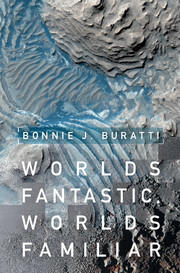Book contents
- Frontmatter
- Dedication
- Contents
- Acknowledgments
- Introduction
- 1 Mercury: The Hottest Little Place
- 2 Venus: An Even Hotter Place
- 3 Mars: The Abode of Life?
- 4 Asteroids and Comets: Sweat the Small Stuff
- 5 Galileo's Treasures: Worlds of Fire and Ice
- 6 Enceladus: An Active Iceball in Space
- 7 Titan: An Earth in Deep Freeze?
- 8 Iapetus and its Friends: The Weirdest “Planets” in the Solar System
- 9 Pluto: The First View of the “Third Zone”
- 10 Earths Above: The Search for Exoplanets and Life in the Universe
- Epilogue
- Glossary
- Index
- Plate section
4 - Asteroids and Comets: Sweat the Small Stuff
Published online by Cambridge University Press: 24 March 2017
- Frontmatter
- Dedication
- Contents
- Acknowledgments
- Introduction
- 1 Mercury: The Hottest Little Place
- 2 Venus: An Even Hotter Place
- 3 Mars: The Abode of Life?
- 4 Asteroids and Comets: Sweat the Small Stuff
- 5 Galileo's Treasures: Worlds of Fire and Ice
- 6 Enceladus: An Active Iceball in Space
- 7 Titan: An Earth in Deep Freeze?
- 8 Iapetus and its Friends: The Weirdest “Planets” in the Solar System
- 9 Pluto: The First View of the “Third Zone”
- 10 Earths Above: The Search for Exoplanets and Life in the Universe
- Epilogue
- Glossary
- Index
- Plate section
Summary
There is an apocryphal, but famous, story that has circulated for years among planetary scientists and others. When confronted by two Yale scholars with evidence of stones falling to the Earth after a giant fireball appeared in the sky near Weston, Connecticut in 1807, Thomas Jefferson supposedly said that “It is easier to believe that two Yankee professors would lie than that stones would fall from heaven.” The actual comments made by Jefferson were more temperate, reflecting the normal skepticism of any scientist confronted with unusual new data. In a letter dated February 15, 1808 to Daniel Salmon, Jefferson writes:
We certainly are not to deny whatever we cannot account for. A thousand phenomena present themselves daily which we cannot explain, but where facts are suggested, bearing no analogy with the laws of nature as yet known to us, their verity needs proofs proportioned to their difficulty.
Other historical falls of meteorites include a devastating event in CE 1490, when Chinese records state that stones from the sky weighing several pounds fell “like rain” and killed 10,000 people in what is now Ganzu province. A large tsunami accompanied by fires, which can be caused by an asteroid impacting the oceans, was recorded in both New Zealand and Australia around 1500. (The appearance of Comet C/1490 Y1 and possibly associated yearly meteor showers is probably unrelated as it was observed about four months before the meteor fall.) No surviving meteorites from this event have been found in China. Could it have been a deadly hailstorm with exaggerated casualties? We just don't know.
Even more uncertain is the biblical story of stones that fell on the Amorites: “It happened when they fled before Israel. On the descent of Bet-Horin, God threw upon them large stones (avanim g'dolot) from heaven towards Azekah, and they died. The number that died from the stones of hail (avnai-barad) was greater than the number slain by Israel by the sword” (Joshua 10: 11). The first phrase seems to suggest a meteor shower, but the second phrase explicitly mentions the more common hail. In his book Rain of Iron and Ice, planetary scientist John S. Lewis suggests that the halting of the Sun two verses later (Joshua 10: 13) could be an illusion born of a brightly lit sky, similar to that observed after modern, confirmed meteor strikes.
- Type
- Chapter
- Information
- Worlds Fantastic, Worlds FamiliarA Guided Tour of the Solar System, pp. 73 - 95Publisher: Cambridge University PressPrint publication year: 2017



